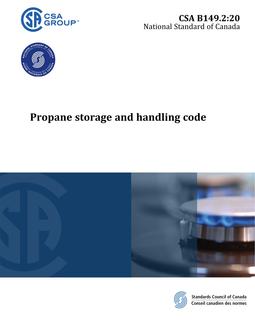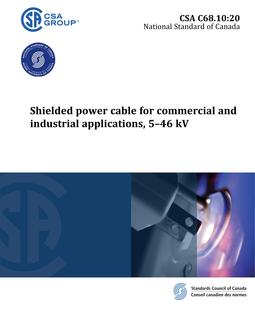Preface
This is the second edition of CSA Z275.6, Unexploded explosive ordnance (UXO) and munitions diving. It is part of a series of Standards on occupational diving, hyperbaric facilities, and work in compressed air environments. It supersedes the previous edition published in 2011. While the first edition of this Standard was developed to meet the needs of contract diving operations working with the Department of National Defence (DND) involved in assessment and disposal of unexploded explosive ordnance (UXO) located underwater, the scope of this edition has been expanded to include police diving on sites where explosives are potentially present.
Scope
1.1 General This Standard applies to occupational diving operations conducted in connection with unexploded explosive ordnance (UXO) and specifies minimum competency level requirements for all personnel directly associated with the techniques of UXO diving identified in this Standard and additional requirements for occupational safety during UXO diving operations. This Standard also applies to police diving operations conducted in connection with underwater improvised explosive devices (IED’s) and/or commercial explosives. The standard specifies the minimum competency level requirements for personnel involved in police explosive diving. 1.2 UXO diving competencies 1.2.1 This Standard specifies competency requirements for a) occupational (open-circuit) self-contained underwater breathing apparatus (SCUBA) diving; and b) surface-supplied diving, as follows: i) restricted, surface-supplied; ii) unrestricted, surface-supplied; and iii) mixed gas. 1.2.2 This Standard specifies competency requirements for the following personnel associated with the diving techniques specified in Clause 1.2.1 as they relate to UXO diving: a) UXO SCUBA diver (see Clause 5); b) UXO SCUBA tender (see Clause 6); c) UXO SCUBA supervisor (see Clause 7); d) UXO restricted surface-supplied diver (see Clause 8); e) UXO surface-supplied tender (see Clause 9); f) UXO restricted surface-supplied supervisor (see Clause 10); g) UXO unrestricted surface-supplied diver (see Clause 11); h) UXO unrestricted surface-supplied supervisor (see Clause 12); i) UXO surface-supplied mixed-gas diver (see Clause 13); j) UXO surface-supplied mixed-gas tender (see Clause 14); k) UXO surface-supplied mixed-gas supervisor (see Clause 15); l) Police explosive SCUBA diver (see Clause 16); m) Police explosive SCUBA tender (see Clause 17); n) Police explosive SCUBA supervisor (see Clause 18); o) Police explosive recognition SCUBA diver (see Clause 19); p) Police explosive recognition SCUBA tender (see Clause 20); q) Police explosive recognition SCUBA supervisor (see Clause 21); r) Police explosive restricted surface-supply diver (see Clause 22); s) Police explosive restricted surface-supply tender (see Clause 23); t) Police explosive restricted surface-supply supervisor (see Clause 24); u) Police explosive recognition restricted surface-supply diver (see Clause 25); v) Police explosive recognition restricted surface-supply tender (see Clause 26); and w) Police explosive recognition restricted surface-supply supervisor (see Clause 27). Note: These categories of occupational diving personnel correspond with the categories of occupational diving personnel specified in CSA Z275.4, but with the addition of the prefix “UXO”, or “police explosive”, or “police explosive recognition” to identify the additional endorsement of UXO diving or police explosive diving competencies as specified in this Standard. 1.3 Dual dimensions The values given in SI units are the units of record for the purposes of this Standard. The values given in parentheses are for information and comparison only. 1.4 Terminology In CSA standards, “shall” is used to express a requirement, i.e., a provision that the user is obliged to satisfy in order to comply with the standard; “should” is used to express a recommendation or that which is advised but not required; and “may” is used to express an option or that which is permissible within the limits of the standard. Notes accompanying clauses do not include requirements or alternative requirements; the purpose of a note accompanying a clause is to separate from the text explanatory or informative material. Notes to tables and figures are considered part of the table or figure and may be written as requirements. Annexes are designated normative (mandatory) or informative (nonmandatory) to define their application.
Product Details
- Edition:
- 2nd
- Published:
- 01/01/2016
- Number of Pages:
- 66
- File Size:
- 1 file , 1.5 MB
- Product Code(s):
- 2424047, 2424533, 2424047, 2424047


